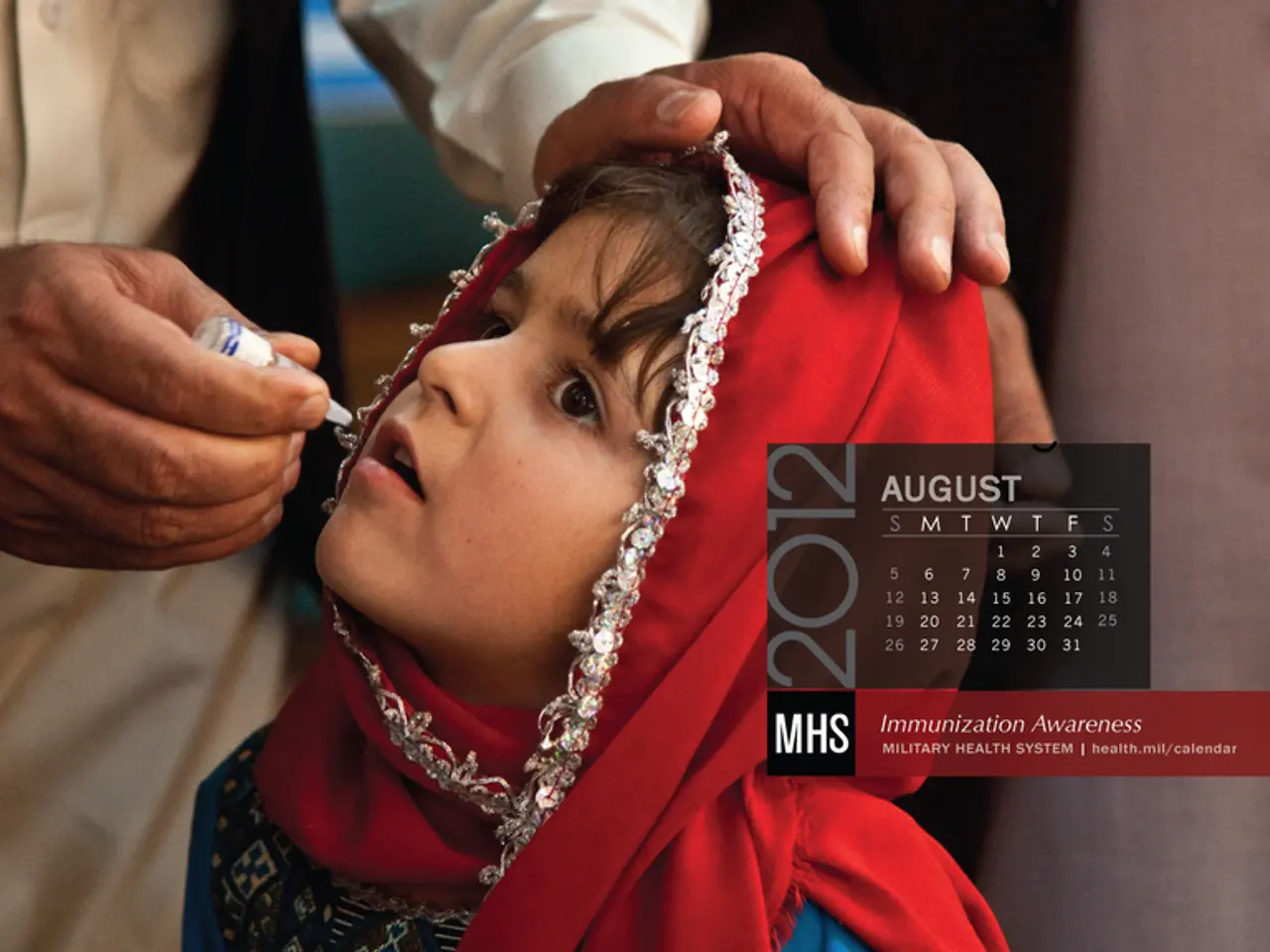Crucial Immunizations for Freshborn Infants in Nigeria
Headline: Boosting Immunization Coverage in Nigeria: A Multi-Level Approach
Subhead: Enhancing healthcare infrastructure, training workers, and addressing vaccine hesitancy are key to a healthier society.
Nigeria's vaccination program has a longstanding history aimed at controlling vaccine-preventable diseases. Over the years, the program has evolved into a comprehensive childhood immunization schedule supported by the National Primary Health Care Development Agency (NPHCDA).
History and Overview
The country's immunization efforts have targeted diseases like diphtheria, measles, rubella, malaria, and more. However, coverage challenges due to socio-economic factors and disruptions such as the COVID-19 pandemic have caused declines in vaccine uptake and resurgence of diseases like diphtheria in areas such as Kano State.
Significant national campaigns include malaria vaccination introduction, aiming to reduce malaria mortality drastically by 2025. National immunization efforts have been modernized with innovations such as the Nigeria Immunization Agenda 2030 Collaborative, launched in 2024, enhancing local government and health worker participation across the country to increase coverage sustainably and efficiently.
Current Vaccination Schedule
The malaria vaccine schedule involves four doses, while Nigeria is also conducting a large-scale Measles-Rubella (MR) vaccination campaign targeting over 102 million children aged 9 months to 14 years. The standard childhood immunizations include vaccines against BCG (tuberculosis), MCV1 (measles-containing vaccine), DPT3 (diphtheria, pertussis, tetanus), and Polio3, among others, striving to reach at least 80% coverage as projected by 2030.
Role of the National Primary Health Care Development Agency (NPHCDA)
NPHCDA is the key federal agency coordinating immunization programs nationwide. The agency oversees vaccine and logistics management at all administrative levels, ensuring adequate cold chain infrastructure and timely vaccine distribution for campaigns like the integrated Measles-Rubella program. NPHCDA also supports capacity building and peer-learning programs to enhance local immunization efforts.
Addressing Challenges
Urban areas have better access to vaccinations compared to rural areas in Nigeria. To address this disparity, efforts such as establishing mobile vaccination clinics and outreach programs, improving infrastructure and transportation systems, and investing in mobile vaccination units and strengthening community healthcare centers are essential.
Addressing misinformation, promoting vaccine education, and enhancing trust in healthcare systems can help combat hesitancy. Training healthcare workers on proper storage techniques and providing reliable refrigeration systems can minimize spoilage. Engaging community leaders, religious institutions, and providing factual information can help overcome concerns about vaccines.
The Way Forward
Vaccines play a vital role in protecting infants from potentially life-threatening diseases and improving overall public health. It is our collective responsibility to prioritize the well-being of our children and ensure they receive the necessary protection through vaccinations.
Nigeria needs to invest in robust cold chain systems to maintain vaccine efficacy. Misconceptions, religious beliefs, and fear of side effects contribute to vaccine skepticism in Nigeria. Collaborating with international organizations, implementing temperature monitoring technologies, and regular maintenance can strengthen the cold chain.
By vaccinating Nigerian newborns, we can effectively prevent the spread of diseases, reduce child mortality rates, and contribute to a healthier and safer society. It is crucial that parents strictly follow the recommended vaccination schedule provided by healthcare professionals. The government and healthcare institutions in Nigeria have made efforts to make vaccines accessible to all newborns, regardless of their socio-economic background.
- Ensuring the health and well-being of children is essential, and following the recommended vaccination schedule is crucial for this purpose.
- In order to achieve more efficient and sustainable childhood immunization coverage, the government can turn to programs like the Nigeria Immunization Agenda 2030 Collaborative for assistance.
- To promote a healthier and safer society, it's important to address vaccine hesitancy by advocating for accurate vaccine information, trust in healthcare systems, and proper training of healthcare workers.
- As parents, it's our responsibility to prioritize our children's education about vaccine benefits and the importance of following the set vaccination schedule for their health.
- In addition to establishing mobile vaccination clinics and improving infrastructure, we must engage community leaders and religious institutions to help overcome vaccine skepticism and ensure children in both urban and rural areas receive necessary vaccinations.




